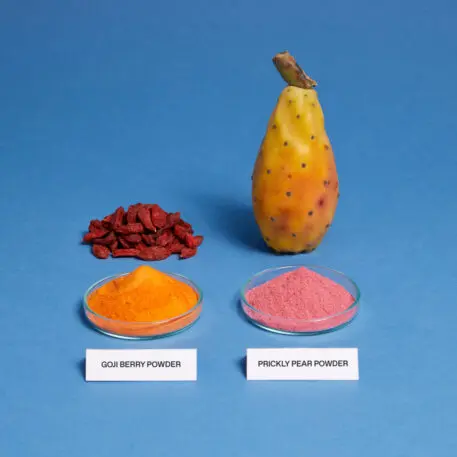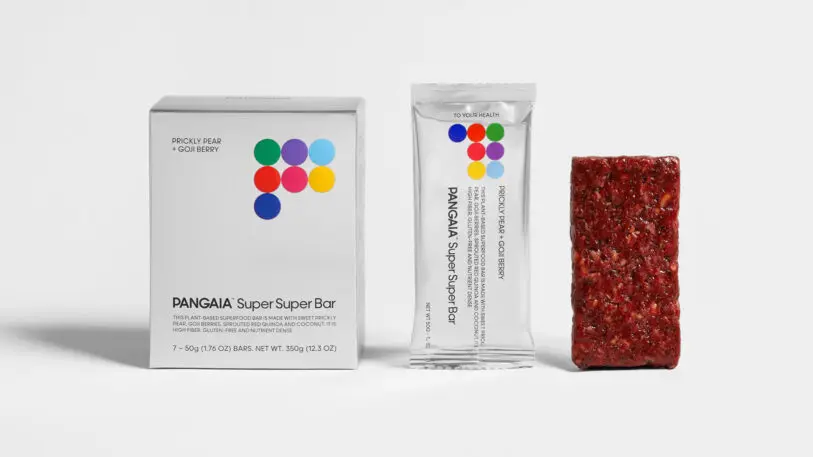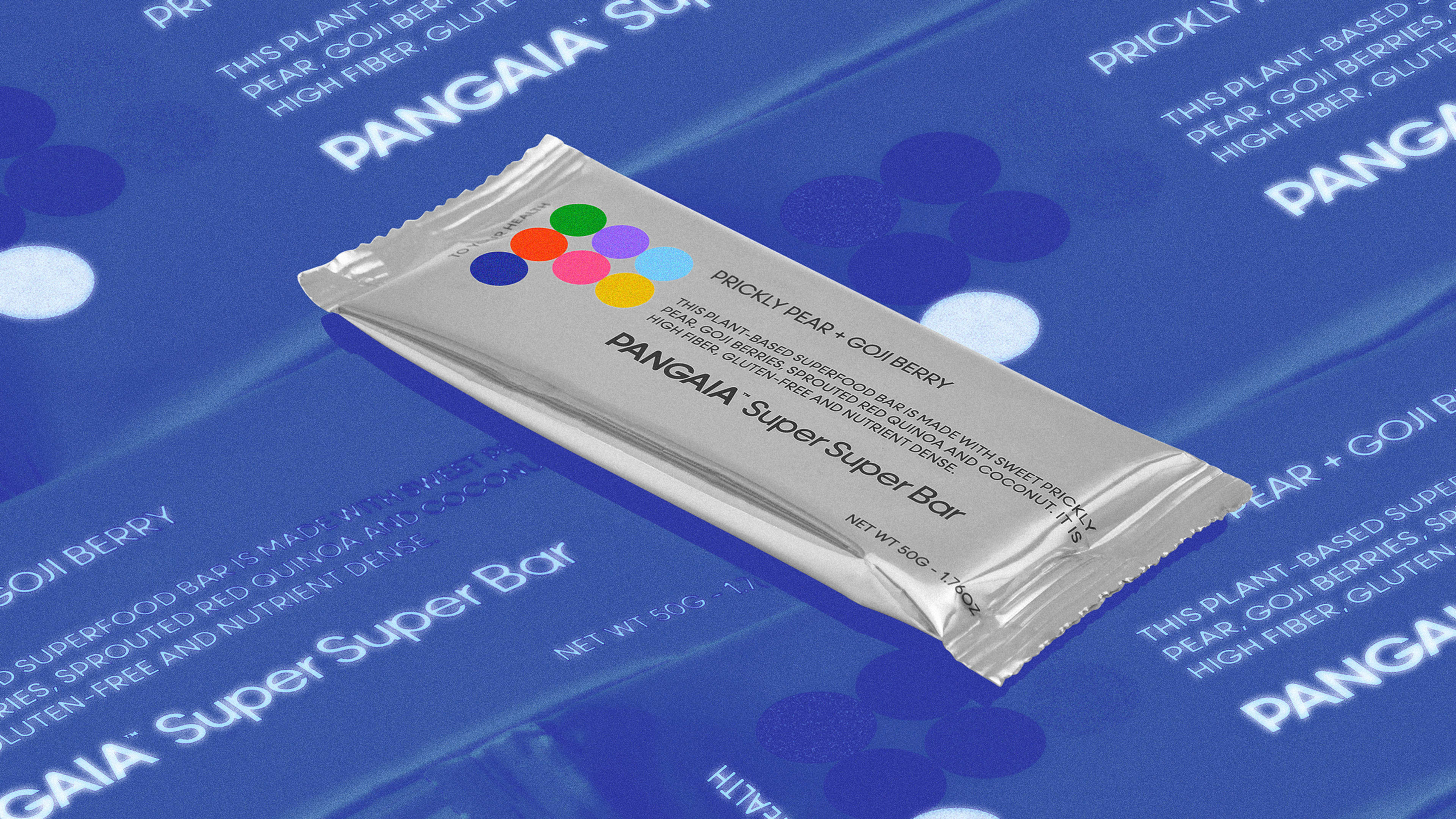Since launching three years ago, Pangaia has created ink out of air pollution, vegan leather out of grapes, down jackets stuffed with wildflowers, and fabric made from food waste. Along the way, the clothing brand has become an influencer favorite, with its signature oversized tracksuit sets seen across Instagram.
Now, it’s expanding its lineup to include products you can actually eat, with the launch of Pangaia Health.

The first product is a superfood bar that the company claims is carbon-neutral and sustainably packaged. Its ingredients include prickly pear, goji berry, sprouted red quinoa, and coconut. Currently, the bars–which cost $35 for a pack of seven–will be sold through the company’s website and will only be available in the US starting March 24th. Eventually, Pangaia plans to expand into more food categories.
Just as the brand’s clothing arm partners with different research facilities, Pangaia Health works with scientists, farmers, nutritionists, and others in the culinary space to create their products. The company partnered with packaging company Tipa to ensure that the bar and its packaging are fully compostable.

Pangaia isn’t the first apparel company to spin off a food vertical. Patagonia’s Patagonia Provisions, which sells food grown through regenerative organic farming, has been around since 2012, debuting Wild Salmon Jerky before expanding into offerings like soup, coffee, and beer. Patagonia Provisions also sells products from other companies that meet its strict sustainability requirements.
“We want people to see and to learn about the innovation we are doing,” Laufer says. “There’s this old-school way of thinking where people might be worried that others will use the same suppliers, but we want them to do to that. We want people to learn about these new materials like the Tipa packaging or the Incredo sugar so that the world gets better at using these materials.”
Recognize your brand’s excellence by applying to this year’s Brands That Matter Awards before the early-rate deadline, May 3.
